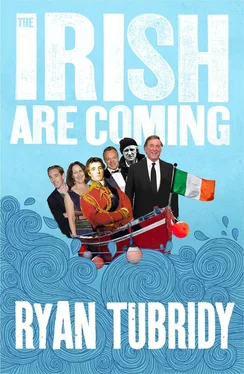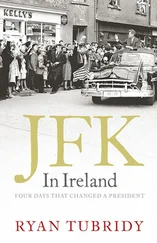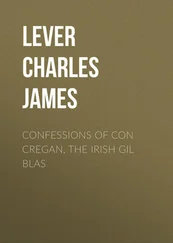The comeback was restricted due to poor health but there was time for Allen to lob one more grenade at the establishment when he told his now infamous ‘clock’ joke: ‘We spend our lives on the run. You get up by the clock, you go to work by the clock, you clock in, you clock out, you eat and sleep by the clock, you get up again, you go to work – you do that for forty years of your life and then you retire – what do they f***ing give you? A clock!’
Unbelievably, some ‘high-minded’ members of the British parliament took the BBC to task for lack of taste because of the use of the F word in the punchline. The Beeb kowtowed but Allen was unapologetic: ‘I’m Irish and we use swearing as stress marks.’
Slowly, his career was coming to an end but not before he received belated recognition by the bright young things of British comedy, who wisely awarded Allen the lifetime achievement award at the British Comedy Awards in 1996. Looking back on his career, Allen wondered aloud where his comedy came from and ended up thanking a comic deity for the nuggets that fuelled his career: ‘I don’t know if there’s somebody out there, some god of comedy, dropping out little bits saying, “Here, use that, that’s for you, that’s to keep you going.”’ Personally, I think his Irishness was the root of his material; it gave him the anger and anarchy.
The British public heard Dave Allen’s last performance on BBC Radio 4 in 1999 before he retired fully and indulged in his favourite hobby, painting. He had already given up the sixty-a-day smoking habit, telling friends: ‘I was fed up with paying people to kill me; it would have been cheaper to hire the Jackal to do the job.’ But it still caught up with him and he died of emphysema in 2005 while his second wife was pregnant with a son he would never meet (he had two children from a previous marriage).
Towards the end of his life, there was a renewed respect for Dave Allen with comedians like Jack Dee, Pauline McLynn, Ed Byrne and Dylan Moran citing him as a significant influence. On hearing of Allen’s death, Eddie Izzard described him as ‘a torchbearer for all the excellent Irish comics who have followed in recent years’.
There have been Dave Allen revivals on the telly recently and when I watch them I can see exactly what my dad saw in him in the 1970s. It’s observational comedy that hits a nerve, that makes you go ‘Yeah, I agree, I’m right with you there.’ It’s surprising how little has dated, even in these days when the Church doesn’t have such a fierce hold on our souls. I’d like to take this opportunity to say to Dave Allen what he always said to us at the end of his shows: ‘Goodnight, thank you, and may your god go with you.’
DYLAN MORAN: telling it like it is
Born 3 November 1971
Real life is fine. But you can only take so much of it.
Like Dave Allen’s, Dylan Moran’s stage persona enjoys a drink and he slurs and staggers as if he’s already had a couple of sharpeners: ‘A comedy club always seemed to me the extension of a pub so there’s no reason not to have a drink in your hand.’ The character he creates is like the embarrassing drunk at a social gathering saying the stuff that everyone else is thinking but is too polite to say. It’s a very Irish thing, according to Moran: the congenital drunk in the corner of the Irish pub will suddenly burst out ‘You’re all talking shite and I’m going to tell you why. For the next hour.’
In his stage show, he has some great ‘telling it like it is’ skits:
You know when you’re late and you arrive and say ‘I’m so sorry. Traffic. Traffic was terrible. And there was a fire as well. A small boy – I had to give him an eye operation and all I had was a spatula and a banana.’ You should just tell the truth. You should just walk in and say ‘I knew you were here. I knew you were waiting. I was at home and do you know what I did? I had a bun. And it was delicious. Because I knew you were waiting. I’ll have a glass of wine – thank you very much.’
Moran says it all goes back to when he was young and ‘there were old relatives who would tell me stories and they might be funny or they might bore the arse off me’. He grew up in Navan, County Meath with a carpenter father and a mother who wrote poetry and taught him the importance of words from the word go. Like Dave Allen and Peter O’Toole before him, Moran raged against his religious education; he was ‘depressed by the priestly omnipresence’ and all the people telling him ‘stop it, don’t, put it down, sit down, be quiet’. He left school at the age of sixteen and drifted around for a few years, writing poetry and briefly, incongruously, working in a florist’s before, at the age of twenty, he ended up in Dublin’s Comedy Cellar – a small club above a bar – and caught the bug.
The act he developed was a meandering stream of consciousness – like Dave Allen, he’s the funniest man in the pub when it’s working well, but he’s much weirder than Allen. The oddness was also captured in a column he wrote for the Irish Times on random topics – recipes, insects, you name it; he’d take any subject and float off with it. After a couple of years doing the clubs in Dublin, he came across the water: ‘I had to make some money. I had to earn a living. So I thought “I’ve been having a great time playing with mud pies, but will anybody buy them?” And that’s why I went to London.’
He found it hard at first; the comedy circuit can be a thankless slog and he might not have continued if he hadn’t won the ‘So You Think You’re Funny’ competition at the Edinburgh Festival in 1993, followed by the coveted Perrier Award in 1996. After that it all started to happen for him and he got a role in a BBC Two sitcom How Do You Want Me , then co-wrote Black Books with fellow Irishman Graham Linehan (of whom more later). Bernard Black, the character he created and played in Black Books , is a droll, put-upon bookshop owner who’s not interested in much apart from smoking, drinking and reading – and somehow you get the impression he’s not much different from Moran himself.
According to Moran, there are differences between comedy in England and Ireland. In England, ‘you are the man who has a licence to say anything, which acts as an icebreaker for everyone in the room’. That’s not needed in Ireland where we’re used to our outspoken characters and the ice rarely needs breaking. Maybe that’s why Moran has been more successful in the UK than back at home. He relishes the fact that he’s seen as an eccentric. ‘In Ireland there’s great tolerance of “the character”. People say “Ah, don’t mind Jimmy – he always wears a bag on his head.” And in England these people are anathema, they’re pariahs, you cross to the other side of the street because they get in the way of your day and fuck it up.’ He’s happy to be the pariah, the one expressing himself in his own unique way. It gives him his edge.
Moran says it’s not the material that makes his act work, though: it’s about timing: ‘I understood there was a certain tension needed to make people laugh, so I created tension and built it to a point at which they laughed.’ He doesn’t tell jokes – he just opens his mouth and off he goes. On occasion he has bombed when the audience just didn’t get that stream-of-consciousness thing or his timing was off, and nowadays he’s focusing more on the TV work but still does comedy festivals worldwide. He’s settled in Edinburgh, with a wife and two children, but looks back nostalgically at the old days in Dublin when he was starting out: ‘The most fun I had, the most pleasure, was in the early Comedy Cellar days. And what matters to me is being able to still walk into the Cellar and make people laugh.’
Читать дальше












